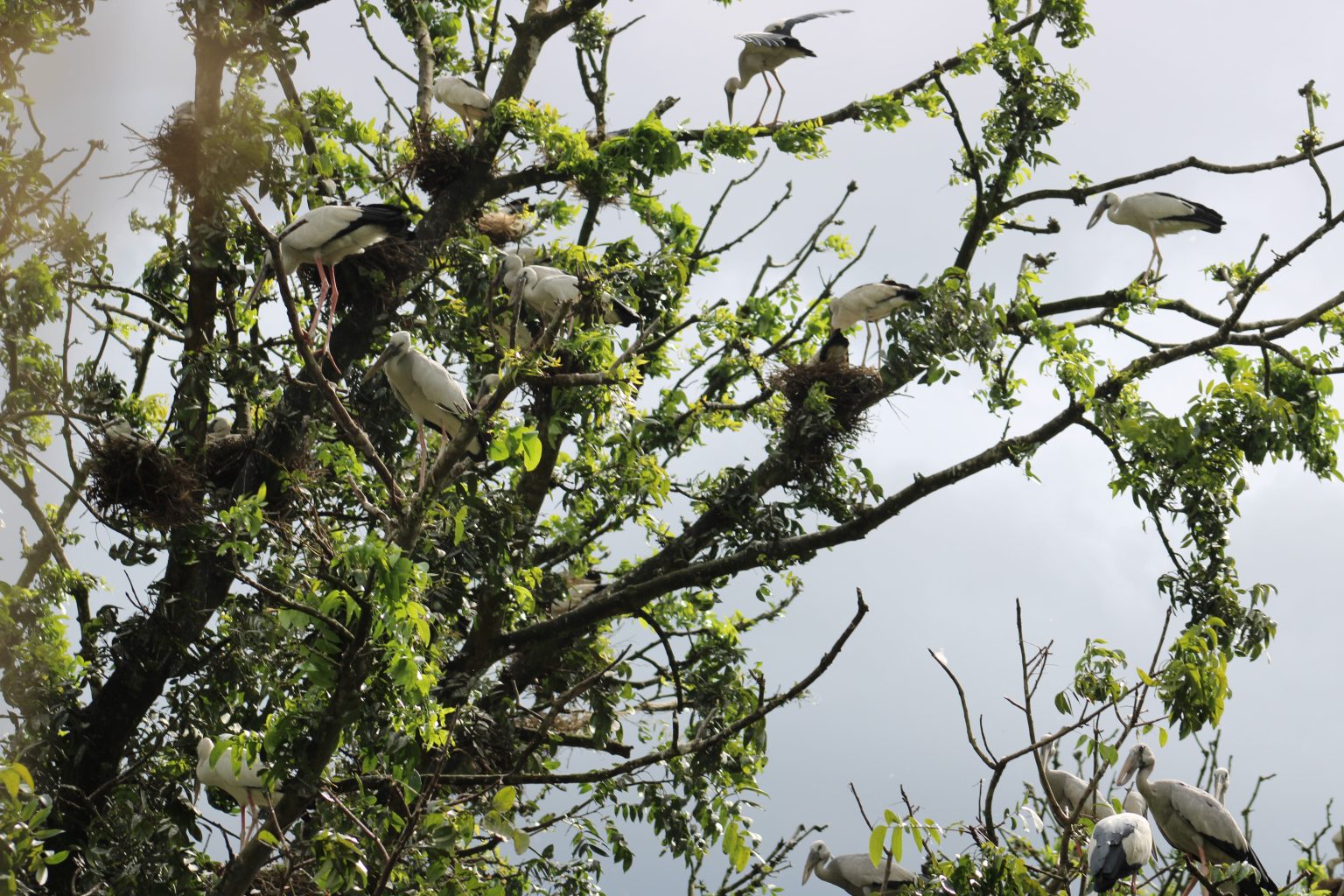Ashurhat village in Shailkupa upazila has turned into a haven for migratory birds, attracting thousands of Asian openbill storks, cormorants, and egrets. Two ponds covering nearly 12 bighas of land have become nesting grounds, with birds building nests on nearly every branch of the surrounding trees. Locals estimate that around 10,000 birds now inhabit the area.
From dawn to dusk, and even at night, the birds remain active — constructing nests, incubating eggs, and feeding chicks. The noise from passing vehicles and villagers walking along the paved road that cuts between the ponds does not disturb their activities. Residents often help the birds, rescuing chicks that fall from nests.
Tanmay Acharya, wildlife and biodiversity conservation officer at the Khulna Forest Department, said a proposal has been made to acquire the land and declare it a permanent bird colony. “One pond owner, Abdur Razzak, has agreed, but the other, Gopal Chandra Biswas, has objections. We even suggested alternative government land for compensation, but no final decision has been made,” he said.
Abdur Razzak, president of the Bird Conservation Association, said, “Our 25-member team guards the area, but hunters still attempt to enter at night. Administrative vigilance is not as strong as before. We have repeatedly urged the government to acquire the land and declare it a sanctuary. Otherwise, trees may be cut, and birds may lose their home.”
Shailkupa Upazila Nirbahi Officer Snigdha Das assured that daily patrols are in place. “If anyone attempts bird hunting, strict action will be taken,” she said.
Locals say the birds have been breeding here for about a decade, but this year, the number of openbill storks is higher than ever. During the monsoon, they feed in nearby fields and wetlands, where abundant rainfall has created plenty of snails, fish, and aquatic insects.
Asian openbill storks usually lay three to four eggs, cormorants six to eight, while egrets lay even more. All prefer to live in large colonies. The Forest and Wildlife Conservation Department in Khulna has declared the area protected, while the upazila administration deploys village police for regular patrols. A bird conservation association has also been active since 2017, and hunting is strictly banned.
Visitors arrive daily to watch the birds. Local resident Paltan Biswas said, “Birds have been coming here for 10 to 12 years. They build nests, raise chicks, then fly away. Nobody kills birds here. If chicks fall, we put them back. Many people come to watch them, especially on Fridays.”
To accommodate visitors, the Jhenaidah District Council has built a shed and installed a tube well for drinking water. Resident Rupia Khatun added, “The government built this facility two to three months ago. Many visitors come and enjoy watching the birds.”
While the village has become a thriving sanctuary, locals fear that without formal government intervention, the future of this unique habitat could be at risk once the current guardians are gone.


